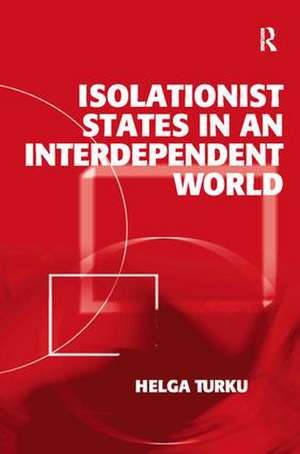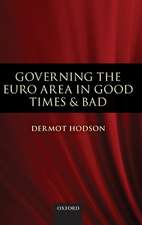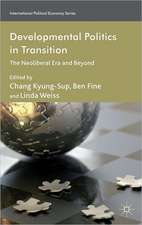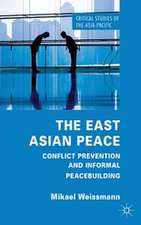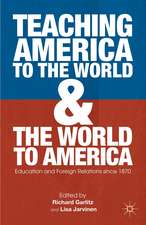Isolationist States in an Interdependent World
Autor Helga Turkuen Limba Engleză Hardback – 28 sep 2009
Preț: 821.10 lei
Preț vechi: 1103.48 lei
-26% Nou
Puncte Express: 1232
Preț estimativ în valută:
157.11€ • 164.51$ • 130.32£
157.11€ • 164.51$ • 130.32£
Carte tipărită la comandă
Livrare economică 09-23 aprilie
Preluare comenzi: 021 569.72.76
Specificații
ISBN-13: 9780754679325
ISBN-10: 0754679322
Pagini: 194
Dimensiuni: 156 x 234 mm
Greutate: 0.52 kg
Ediția:1
Editura: Taylor & Francis
Colecția Routledge
Locul publicării:Oxford, United Kingdom
ISBN-10: 0754679322
Pagini: 194
Dimensiuni: 156 x 234 mm
Greutate: 0.52 kg
Ediția:1
Editura: Taylor & Francis
Colecția Routledge
Locul publicării:Oxford, United Kingdom
Cuprins
Contents: Preface; Isolationist states in an interdependent world; Isolationism in international relations theory; Legitimacy of the state in isolationist regimes; Domestic isolationism; International isolationism; Conclusion: the viability of isolationist states; Bibliography; Index.
Recenzii
'An intriguing study of why a handful of states pursue extreme isolationist policies despite the sweep of globalization. Using Burma, North Korea and Albania as case studies, the author effectively examines both the rationales for such isolationism as well as its ultimate cost to the societies concerned. An impressive blend of both history and theory.' Stephen Garrett, Monterey Institute of International Studies, USA 'By examining the cases of Albania, Burma and North Korea, this book presents strong and very interesting evidence that countries that adopt the strategy to isolate themselves or become autarkic run the risk of reducing their prospects for economic growth and development and in the long run, the state's ability to exercise power in the international system.' Carlos Seiglie, Rutgers University-Newark, USA '... this book will be of interest to students of world politics and history, who investigate how national interests vary according to different contexts in an interdependent global world.' Europe-Asia Studies
Notă biografică
Helga Turku works in the Department of International Relations at Florida International University, USA.
Descriere
Using historical, comparative and inductive analysis, Helga Turku explains why states may choose to isolate themselves both domestically and internationally. The book examines extreme forms of self-imposed domestic and international isolation in an interdependent international system, noting the effects on both the immediate interests of a ruling regime and the long-term national interests of the state and the populace.
